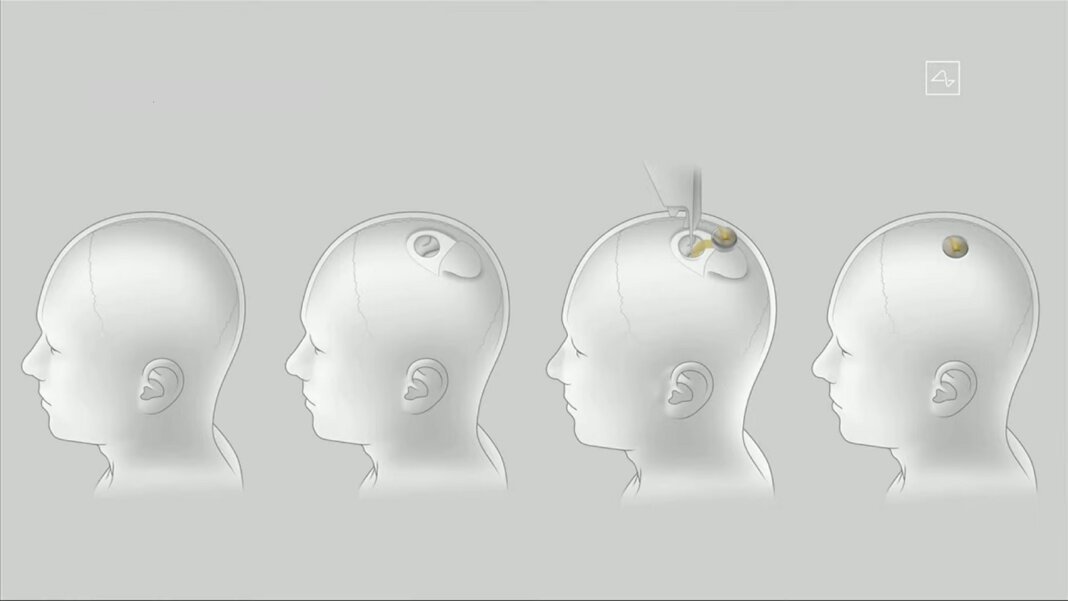Neuralink has successfully implanted its brain interfacing chip, “The Link,” in a second clinical trial participant. On August 21, Elon Musk announced on Lex Fridman’s podcast that the second brain implant surgery “seems to have gone extremely well with the second implant.
“There’s a lot of signal, a lot of electrodes,” Musk said. “It’s working very well.”
“Alex,” whose last name was not provided, is the second participant in Neuralink’s PRIME Study. His surgery was undertaken at the Barrow Neurological Institute in Phoenix, Arizona, the same location as the surgery involving Neuralink’s first human participant, Noland Arbaugh, who made history by being the first to use the company’s brain interface technology.
Alex’s procedure was reportedly successful, and Neuralink has stated on its website that his recovery has been smooth, allowing him to return home the following day. The company’s overall mission for the PRIME Study is “to demonstrate that The Link is safe and useful in daily life.” The study aims to achieve three main benchmarks: 1) Out-of-the-box experience, 2) Repertoire of capabilities, and 3) Thread retraction mitigations.
Within minutes of connecting the device, Alex was reportedly able to control a cursor with his mind and quickly surpassed his previous speed and accuracy records with other assistive technologies. On his first day, Alex set a new world record for brain-computer interface (BCI) cursor control and began exploring its potential in gaming by using it to play the video game Counter-Strike. By the second day, Alex was using CAD software to design a custom mount for his Neuralink charger, showcasing his creation ability to create 3D objects.
This achievement marks a significant milestone in developing a high-performance interface that empowers individuals with quadriplegia to regain control over digital devices and restore their independence.
“I’m already super impressed with how this works!” said Alex, reflecting on his experience as a PRIME Study participant.
Before a spinal cord injury left him quadriplegic, Alex was an automotive technician skilled in designing tools, cars, and machinery. After his accident, he became an avid gamer, using a Quadstick, a mouth-operated joystick, to play games like Counter-Strike 2.
However, with The Link implant, Alex’s gaming experience changed dramatically. He can now aim, move, and shoot simultaneously without pausing one action to perform another, a limitation he faced when using only the Quadstick. The Link allows Alex to think about where he wants to shoot, and the device executes the action.
So far, Alex’s reaction to his newfound capabilities has been overwhelmingly positive. “Just running around is so enjoyable because I can look side to side without moving the Quadstick left and right… I can just [think about where to] look, and it goes exactly where I want it to. It’s insane.”
Last month, another potential candidate for having the device implanted was scheduled to undergo surgery, but Neuralink canceled the procedure due to health concerns involving the patient.
Michael Lawton, CEO of the Barrow Neurological Institute, confirmed the cancellation and emphasized the importance of selecting the right candidate for such trials. “Choosing the right patient for such a trial is crucial. Everyone involved, clinically and surgically, aims to ensure precision,” he stated.
At the beginning of 2024, Noland Arbaugh made history as the first person to receive Neuralink’s brain implant, “The Link.” The 30-year-old quadriplegic, who volunteered for the procedure, shared the profound impact of this technology on his life on X (formerly Twitter). After a diving accident left him paralyzed below the shoulders, Arbaugh underwent implant surgery in January 2024. Since then, the device has granted him remarkable “cyborg” abilities, allowing him to control various technologies using only his mind, such as playing Mario Kart and Chess. “The surgery was super easy,” Arbaugh said in a video he posted on X in March.
Neuralink has been steadily progressing since its formation on June 16, 2016. Before the second brain interface surgery, Musk stated on X, “If all goes well, there will be hundreds of people with Neuralinks within a few years, maybe tens of thousands within five years, millions within 10 years.”
Neuralink says that looking ahead, it is focused on expanding the device’s capabilities, including improved control functions and potential interactions with the physical world, to further enhance users’ independence and communication.
Chrissy Newton is a PR professional and founder of VOCAB Communications. She currently appears on The Discovery Channel and Max and hosts the Rebelliously Curious podcast, which can be found on The Debrief’s YouTube Channel on all audio podcast streaming platforms. Follow her on X: @ChrissyNewton and at chrissynewton.com.

